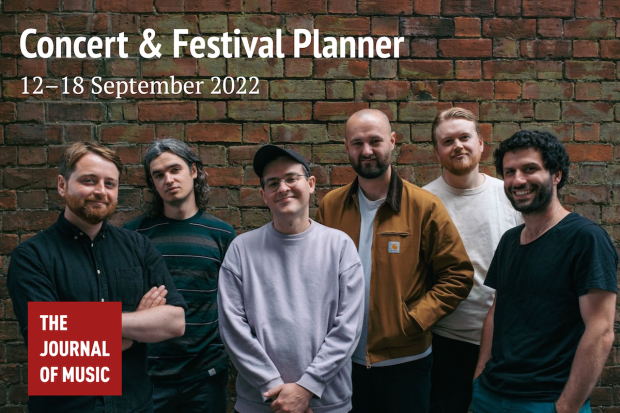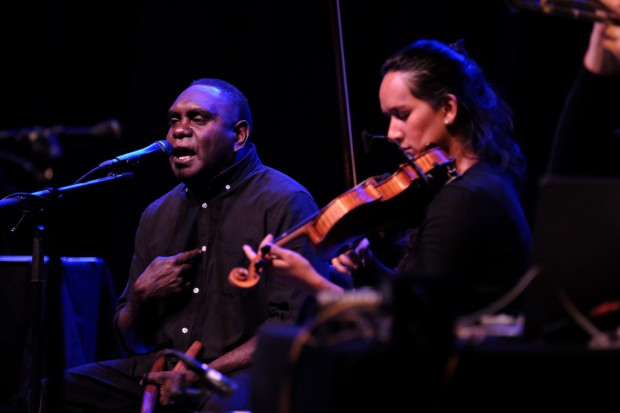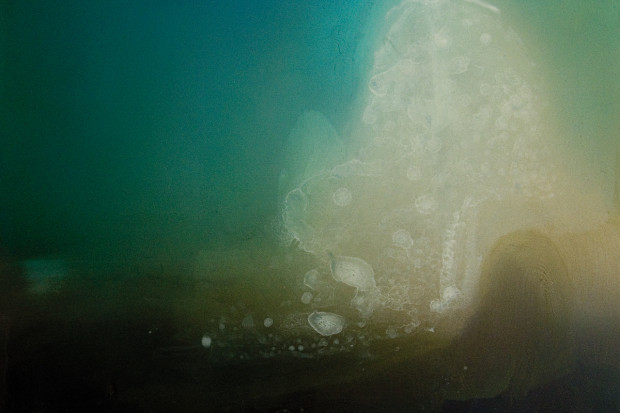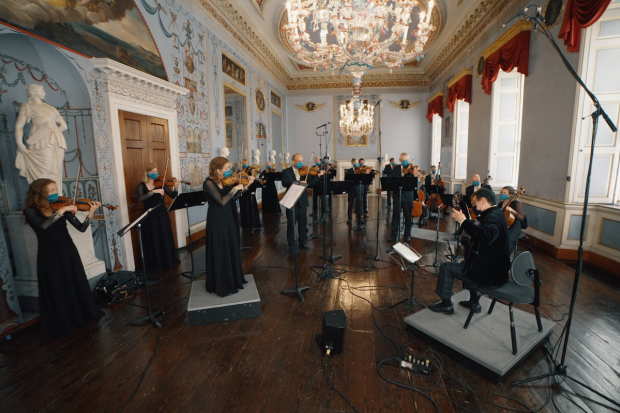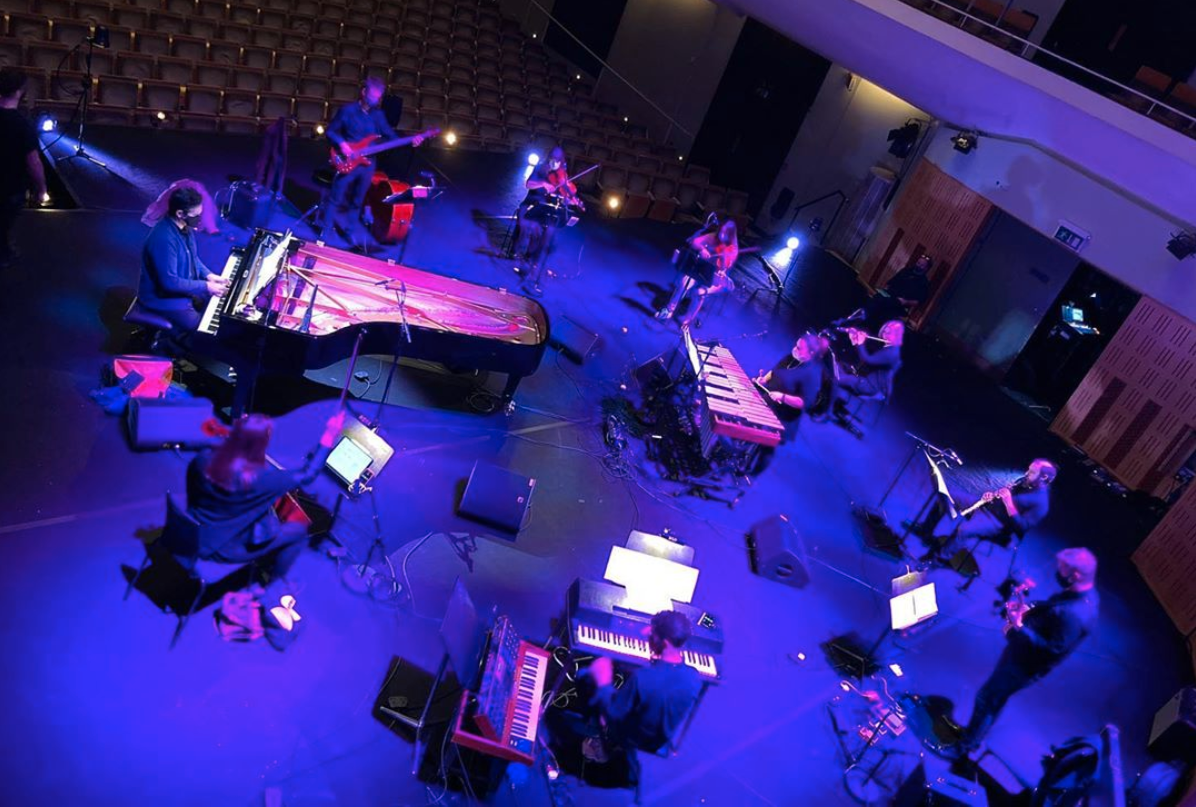
Crash Ensemble performing Julius Eastman's 'Femenine' at the National Concert Hall on 10 November (Photo: Jon Pearson)
The Enduring Vision of Julius Eastman
Prior to Tuesday night’s performance of Femenine, it is unlikely that Irish followers of new music would have heard much about the music of Julius Eastman or his life story. A black, openly gay artist, Eastman was a constant presence in the New York new music scene in the 1960s and 70s both as a performer and composer. However, frustration at the lack of career opportunities precipitated a gradual descent into addiction and mental illness and he died destitute in 1990 having been homeless for several years. Although trained as a pianist, it was for his dexterous baritone voice that he became especially renowned having recorded Peter Maxwell Davies’ Eight Songs for a Mad King (1969) with Davies’ group The Fires of London for the Nonesuch label in 1973. He was also a member of Petr Kotik’s S.E.M. Ensemble, one of the key groups in the New York music scene in the 1970s, and was a regular fixture at the Kitchen, a legendary performance space in the city for experimental art.
Eastman’s music can be described as a form of minimalism liberated from the straightjacket of abstract processes in favour of a more improvisational, unpredictable and directly expressive style. In the course of a single piece the tone can move from passages of reflective stillness to abrasive, energetic writing that, as Kyle Gann wrote in his obituary to the composer, ‘seethes with tension, hatred, triumph’. This character of the music is especially pronounced in his works from the late-1970s which carry provocative, politically engaged titles such as If You’re So Smart, Why Aren’t You Rich (1977), Nigger Faggot (1978), and Gay Guerrilla (1980). Indeed, provocation was a constant thread in Eastman’s life and he gained a degree of notoriety for a performance of John Cage’s Songbooks during which he undressed a young man on stage and gave a lecture laced with homoerotic references, antics that infuriated the composer who was present in the audience.
Femenine (1974) is a slightly earlier work and demonstrates the softer, more meditative side of Eastman’s music. It was originally conceived as a companion piece to Masculine (1974), the score of which has been unfortunately lost. The work’s four and a half page score (view here) consists of several patterns with timings and minimal directions that leave much to the discretion of the performer. The scoring is also vague but the piece is usually performed by a chamber ensemble consisting of winds, marimba/vibraphone, piano, bass and mechanical sleigh bells, an instrument of the composer’s own invention. For this performance Crash Ensemble added violin, viola, cello, synth and electric guitar.
Eastman trademark
The piece began with the sleigh bells forming a background not unlike a tropical nocturnal soundscape of chirping insects. The vibraphone then introduced the main repeated motive of the piece, a two-note cell that began with a rapid semiquaver burst of repetitions (an Eastman trademark) on an E-flat which then gently alternated with an F natural a major second higher. The string and woodwind players gradually entered with further sustained notes thickening the texture so that it formed a sonic canvas for mildly jazz-inflected improvisations on the piano. Gradually, the ensemble came together in increasingly forceful unisons on the two-note cell with back and forth exchanges between the piano and the rest of the ensemble. From here the instruments diverged, beginning their respective repetitions of the two-note cell at different points so that they rhythmically overlapped while the cell itself was put through the various rhythmic variations detailed in the score.
As with all compositions where the score is only a blueprint, so much is dependent on the quality of the performers, but Crash Ensemble seemed to revel in these limitations, extracting the maximum amount of variations in timbre and texture from the minimum amount of material over the work’s 72-minute duration. Particular credit should be given to pianist Francesco Turrisi whose improvisations were particularly inventive in the early sections of the piece and who managed to sneak in a reference to the hymn ‘Be thou my vision’ at one point. Also, bassist Malachy Robinson was a veritable groove machine when things really clicked into gear at the two-thirds mark.
Political statement
If performed to this standard, Eastman’s music is up there with the best music of Terry Riley and Steve Reich which makes it all the more tragic that his career was cut short. Explanations as to the cause of his demise vary widely from a lack of opportunities afforded to black artists by the overwhelmingly ‘white’ East Coast classical music establishment to ‘personality’ problems and the composer’s uncompromising nature. However, given what we know about the continued existence of systemic racism in America – once again brought into sharp relief under the presidency of Donald Trump – it is hard not to conclude that some element of this played a hand in his demise.
In this sense, the concert constituted a direct political statement by Crash Ensemble who invited the activist Bulelani Mfaco to give an opening reflection on the piece and who spoke movingly about the plight of LGBT+ people in South Africa and the inadequacies of the Direct Provision system in Ireland. Together, Mfaco’s words and the scheduling of the concert exactly a week after the most divisive US election in recent memory provided a cautionary note against complacency on our own part and a warning that similarly talented and vulnerable figures could easily fall through the institutional cracks in our own country.
For upcoming livestreams from the National Concert Hall, visit www.nch.ie. For Crash Ensemble, visit www.crashensemble.com.
Published on 12 November 2020
Adrian Smith is Lecturer in Musicology at TU Dublin Conservatoire.











